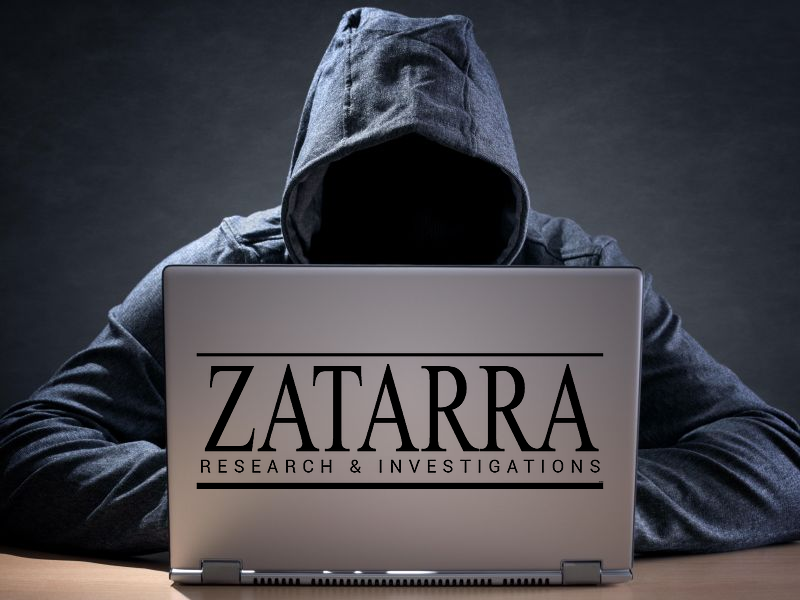Slander, ghost entity and media collusion: meet Zatarra, the new copycat of short-selling groups
On Wednesday 24th, Wirecard, one of the world’s leading internet payment service business, experienced a massive share price decline. This sudden distruct of the stock market followed a report release issued by what appears to be a fake entity created with the sole purpose of deeply damaging the company’s reputation.
Beyond a new demonstration of the effects of stock market versatility and herd behaviour, this case illustrates the increased risks theatening blue chip companies, which can be attacked by a wide range of stakeholders, including ghost entities.
Zatarra Research & Investigation: a mysterious organisation designed to harm and make profit
The crisis originated from a report attacking Wirecard and published by an entity called Zatarra Research & Investigation, a mysterious organisation with no prior history of investigative research. Zatarra describes itself as a “boutique firm of investment professionals, analysts and forensic researchers” and is said to be incorporated in the British Virgin Islands. Zatarra’s website, which has been experiencing many troubles and updates and was put offline several times in the past few days, was unveiled on the exact same day as the report release, using Wix servers. As for the domain name, it was only registered a week before.
The report was first posted on Twitter by Zatarra’s “official” account, before being reported by a journalist from the eminent FT Alphaville less than half an hour later. It is quite unlikely that the journalist was only informed of the report release on the day of publication and spontaneously decided to blindly trust an organisation that no one had ever heard from before and which delivered an information clearly intended to strike one of the main success stories in the financial service and technology market.
It seems quite clear that we are facing the case of a successful business unfairly attacked by a faceless parallel organisation designed to serve some private interests by mean of slander and public discrediting, taking advantage of the rapid dissemination of information coming from untrustworthy and unverified sources allowed by digital platforms.
A malicious attack part of a wide short-selling operation
If Zatarra Research & Investigation did not serve a public interest, their way of proceeding and the fact that they deliberately chose a very wealthy company such as Wirecard, with a market capitalisation exceeding 5.5 billion euros, strongly recalls well-tried processes used by “short-selling research groups”. In fact, several activist organizations such as Muddy Waters, Gotham City Research or Citron Research, used the same kind of tactics, based on reports published on dedicated websites owned by secret organisations and posted on social networks, to assault leading companies such as Valeant, Casino and Rallye after placing bets that the company’s share price will fall, in order to pocket the difference. Each time, companies denied the accuracy of the reports and lodged legal complaints, but most of the times, the damage had already been done and the agressors had met their main goal: make significant financial profits on the stock market.
Of course, in this case, we cannot be sure of anything and will have to wait for the results of the judicial inquiry part of the legal action initiated by Wirecard. Nevertheless, it seems clear that Zatarra Research & Investigation is nothing more than an empty shell dedicated to serve the purpose of its founders: carry out a surprise attack on a blue chip company in the form of a pseudo-expert report, in order to deeply disrupt the stock market and make a significant profit out of a short-selling operation.
A source-less information isn’t really one
Through the growing spread of data allowed by digital platforms and social networks, the idea that anyone can become an information producer has become more and more accurate, to the point where the need to draw up a certain hierarchy of the quality of the information arose. And the first step to check its credibility depends on the reliability of the source.
Yet, Zatarra Research & Investigation presents itself as a secret organisation, concealing the identity of the people said to have carried out the research – whose expertise will then never to be proven. Moreover, Zatarra can’t rely on any prior research recorded to endorse its claim to be a serious research group. Then, Zatarra Research & Investigation cannot be considered as a credible source of information.
Conclusion
Today more than yesterday, it is essential to be extremely vigilant with regard to the information disclosed, whether it comes from anonymous sources or apparently reliable media. If reputation has become one of a company’s most valuable assets, the range of people willing to tackle it to serve personal or financial interests is widely growing, slander and viral propagation process being part of their favourite means of action. Unfortunately, the course of justice will never be able to keep up with the timely dissemination of news allowed by media and social networks. It is then the duty of enlightened citizens not to let them be manipulated by obscure entities who hide to strike, no to serve the public interest but because they do not want to take responsibility for the spread of misleading and defamatory information.
















There are no comments
Add yours